Currently, these companies are under privatization. Among foreign capitals, Heineken bought out a state-owned beer factory and French Castel bought out a state-owned winery. We also see that investments from private equity funds are coming into factories such as a cement factory and a meat processing factory.
70% of stocks of a truck assembling factory operating from 1970s are owned by Italian IVECO and Fiat. The government has a policy of rapid industrialization and has set up an assembling factory of mobile phones in 2010. The factory started to produce a “feature phone” of Chinese ZTE and dispatched some personnel to a ZTE factory in China for letting them learn its assembling and quality control skills.
Four years later, the factory has entered the stage to enable manufacturing smart phones; the first domestically produced smart phone in Ethiopia. Furthermore, this factory has made a contract with Korean Samsung Electronics and begun to produce 50 printers per day this year. Although high-skilled workers of the factory are allocated in the Samsung production line, their total wages are US$ 75 per month including their social services.
Mobile phones and smart phones produced in this factory are currently only sold in Ethiopia. However, what the government is looking for is to bring the products manufactured in Ethiopia to the global supply chain.
H&M is going to bring their clothes made in Ethiopia to H&M’s global supply chain from this year. It has entrusted three tailoring factories in Ethiopia to manufacture its products. When I visited the three factories, there were piles of T-shirts with familiar H&M tags and price tags in Euro or US Dollar. The factories are lively so that they can establish the production system satisfying the required global standard.
Tailoring factory that H&M has entrusted its production (Photo:ABP)
The American General Electric (GE) seeks to make Ethiopia a production base in Africa of medical equipment. The company aims to deliver its medical equipment to all around Africa by the Ethiopian Airlines, whose engines are also supplied by GE. Samsung that I mentioned before has announced to expand assembling items starting from printers to refrigerators, televisions, and laptop computers. The sales target should not be limited to the domestic market in Ethiopia.
There is a case like floriculture, which has been nurtured as a new exportation industry from scratch. The national government of Ethiopia initiated to invite Dutch firms by leasing lands at reasonable prices in order to support rose cultivation, perhaps by mimicking neighboring Kenya, which is among the top five countries of rose exporters in the world. The production caught up with the advance countries very rapidly and the volume of export to Europe in 2012 recorded the third position after Kenya and the Netherlands. Ethiopian roses are distributed to the world through the flower market in the Netherlands.
Wine production by French Castel has been also initiated under the sponsorship of the Ethiopian government. Surprisingly, Ethiopians drink wine a lot. Currently the products are supplied mainly to the domestic market but the company agrees with the government to gradually increase the exportation up to a half of the production. On another note, Ethiopian wine is not well-known, but has high quality and unexpectedly tasty. There is a potential for the Ethiopian wine to get a new status in the global market like Chilean and South African wines.
When I stay in Ethiopia, I come across the case that not only Western global companies but enterprises from China and Bangladesh, which undertake manufacturing for the Western companies, are also taking into consideration of shifting the production base to Ethiopia. The labor-intensive manufacturing sector, which moved from China to the Southeast Asia and the South Asia for seeking cheap and young labor force, is now looking for another place in order to avoid increased labor costs and political country risks in the Southeast and South Asian countries. Physical collapse of a factory in Bangladesh last year was a turning point and some enterprises ended up in Ethiopia as an alternative destination for shifting their production bases.
Turkey is also one of the countries which are enthusiastic about Ethiopia. If you look at a world map, Ethiopia is obviously located in the straight south from Turkey. As monthly wages in Turkey, which was once considered as the “European manufacturing base” full of young and cheap labor, have now increased up to nearly US$1,000, Turkish companies are shifting their production bases to Ethiopia. Currently, 115 Turkish companies including manufacturers of sewing, chemical products, and electronics have entered into Ethiopia.
On the occasion where people cast concerns on conventional “world factories”, Ethiopia, which is politically stable and with low commodity prices and which is geographically close to Europe, is coming into the spotlight as a potential alternative destination of “ China-plus-one” or “ Turkey-plus-one” that plays a part of the global supply chain.





